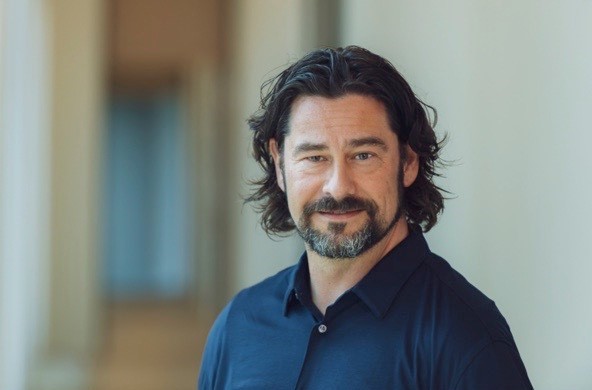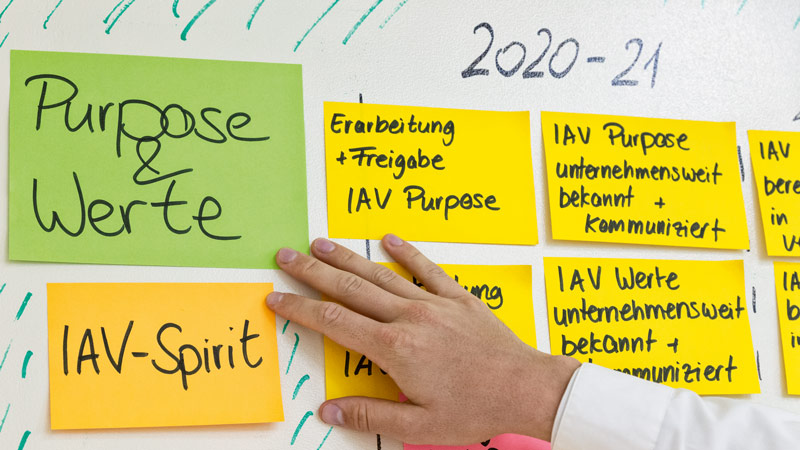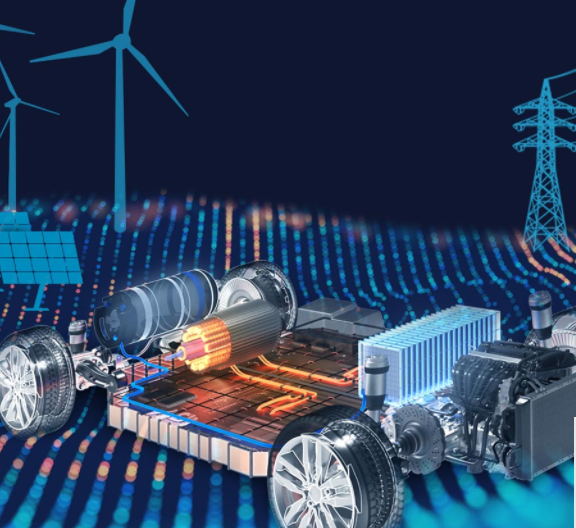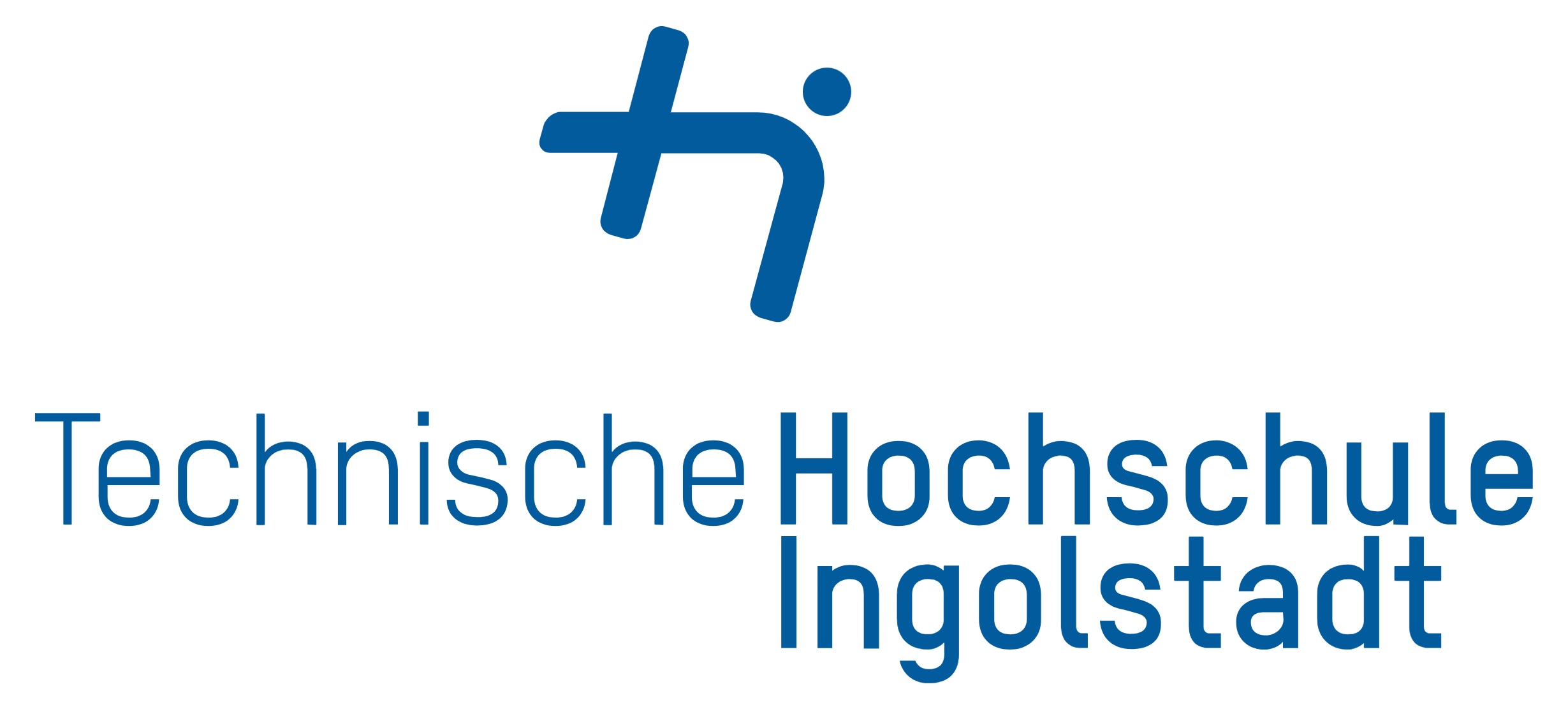IAV Develops Hydrogen Strategy for the Federal State of Saarland
11.03.2021 —
Berlin. Blueprint for hydrogen deployment at state level: Together with consulting subsidiary Consulting4Drive and research institution Reiner Lemoine Institut, engineering specialist IAV is developing a hydrogen strategy for Saarland. The project is intended to set the course for the potential use of H2 technology in the mobility and heating sectors as well as in the steel industry.

Hydrogen is a key element for climate protection and thus also for value creation in the future. On behalf of the Saarland Ministry of Economic Affairs, Employment, Energy and Transport, IAV is working with its subsidiary Consulting4Drive (C4D) and the Reiner Lemoine Institute (RLI) to develop a strategy for the future use of hydrogen. In doing so, IAV is laying the foundation for the development of a regional hydrogen economy in southwestern Germany.
The three partners were awarded the consulting project in a call for tenders issued by the state government. “We will be designing a functioning hydrogen economy here from the ground up, shaping the infrastructure and value chains and intelligently linking the individual industrial sectors,” says Ralf Wascheck, Head of Department for Fuel Cell and Hydrogen Mobility at IAV. “To achieve this, we as a company draw on 25 years of experience in the field of hydrogen. We can accompany our customers at all stages of the hydrogen value chain – from the production of green hydrogen, the planning and optimization of relevant plants to storage and transport.”
Following the adoption of the German government’s National Hydrogen Strategy last summer, Saarland is now also increasingly focusing on H2 as an energy carrier and store.
«Together with our partners, we want to make progress in the fields of production, infrastructure and application. We are convinced: Hydrogen can be the technological bridge to an economically successful and sustainable future for the industrial state of Saarland.»
— Economics and Energy Minister
By the fall, the team headed by IAV project manager Dr Michael Nöding will have developed the strategy, including recommendations on where and in what quantities hydrogen is to be produced or purchased, how it is to be transported, for which industries it is to be used, and at which locations filling stations are to be installed. In many cases, this involves breaking new ground – for example, in the pipeline-based transport of hydrogen.
Another focus is the development of a strategy for the use of H2 in buses, commercial vehicles, passenger cars and trains. Within this context, the experts will also elaborate the advantages and disadvantages of vehicles with fuel cells or H2 combustion engines and provide the ministry with recommendations. In the industrial sector, IAV, C4D and the RLI are examining the use of hydrogen in the production of steel and in connection with the automotive industry, which is strongly represented in Saarland. Other areas of application include the heating sector, for which IAV is evaluating, for example, the use of combined heat and power plants and stationary fuel cells from both a technical and an economic perspective. The RLI is involved in the project in a scientific advisory capacity and supports the various players with data, simulations and optimizations for hydrogen plants, among other things.
«The development of a hydrogen economy is one of the major tasks on the way to a CO2-neutral economy and society, as well as an indispensable component of the change in mobility policy.»
— Head of Technology Strategy at C4D
“Our consortium is taking on the role of pioneer for this and is opening up the market for hydrogen applications by providing consulting services at a very early stage,” says Dr Sebastian Kahlbau, Head of Technology Strategy at C4D. In addition to the relevant technical aspects, the strategy will also include far-reaching recommendations for action, for example on the question of which funding opportunities Saarland can take advantage of and how it can cooperate with partners in a goal-oriented manner, for example in purchasing associations.
“From the point of view of energy system research, hydrogen technologies are a central link between the electricity and mobility sectors and are therefore extremely interesting for the change in energy policy,” explains Oliver Arnhold, head of the research area “Mobility with Renewable Energies” at the RLI. “Our goal in the project is therefore also to test the solutions from Saarland for their transferability to the whole of Germany and thus to support the long-term conversion of the energy supply to renewable energies.”
About IAV
Employing over 8000 members of staff, IAV is one of the world’s leading engineering partners to the automotive industry. The company has been developing innovative concepts and technologies for future vehicles for over 35 years, generating sales in excess of around € 896 million in 2020. Its customers include all the world’s prominent car manufacturers and component suppliers. Besides vehicle and powertrain development, IAV entered the segment of electric mobility and autonomous driving at an early stage and is now one of the leading engineering service providers in these fields. In addition to its development centers in Berlin, Gifhorn and Chemnitz/Stollberg, IAV also has further operations in Munich, Sindelfingen and Ingolstadt as well as in Europe, Asia and North and South America.
- Energy & Water Management
- Hydrogen & Fuel Cell



